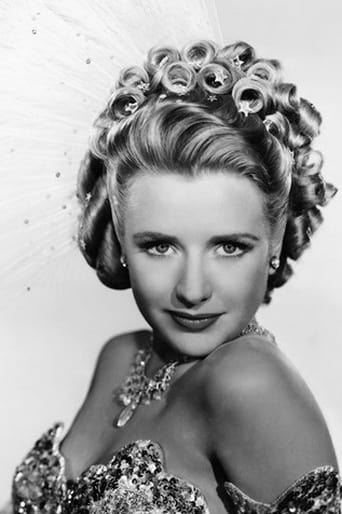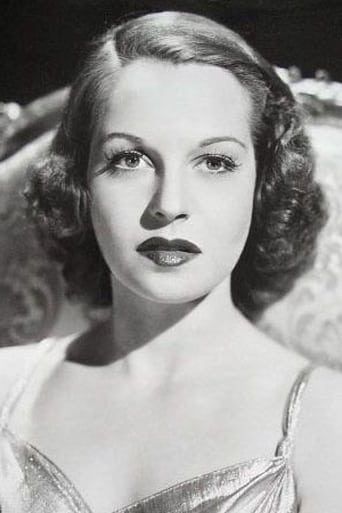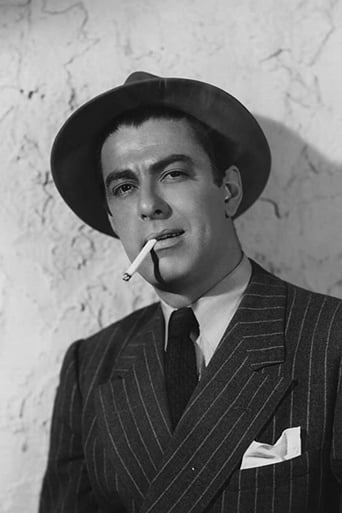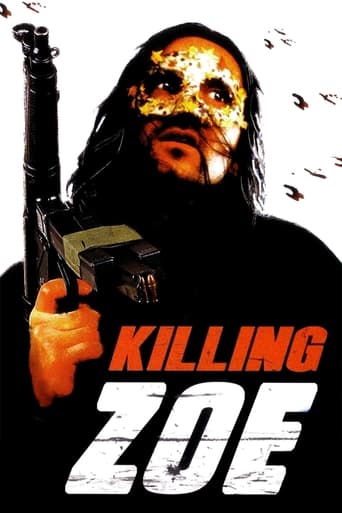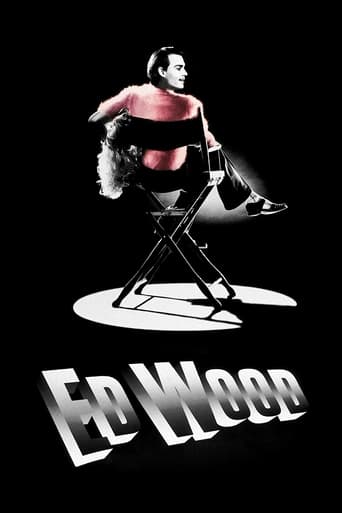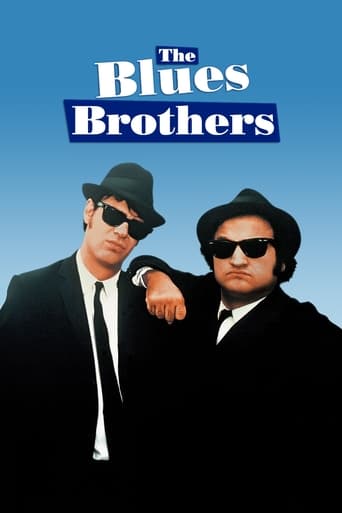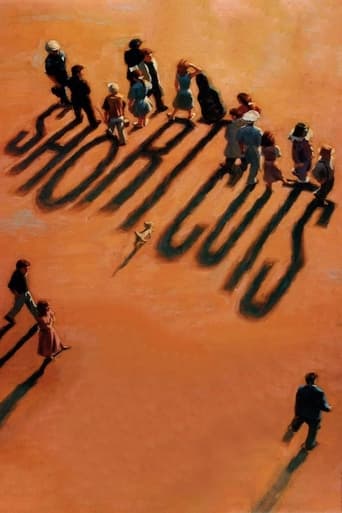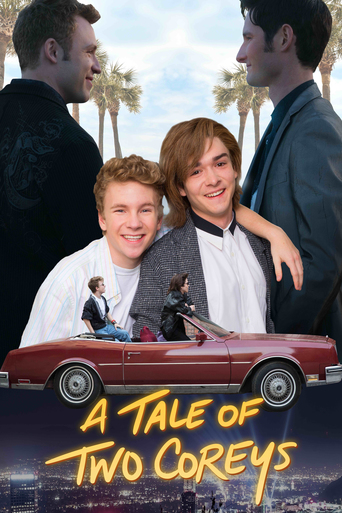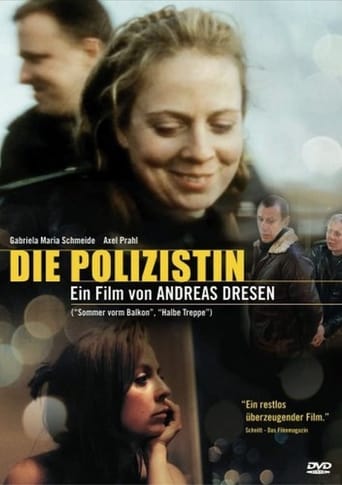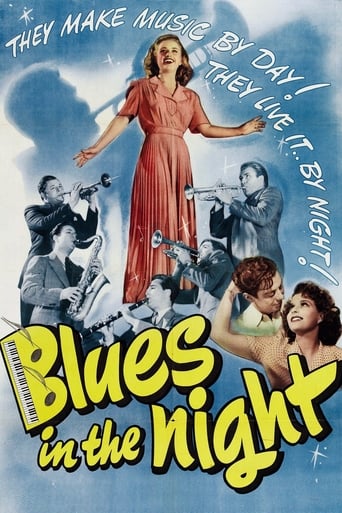
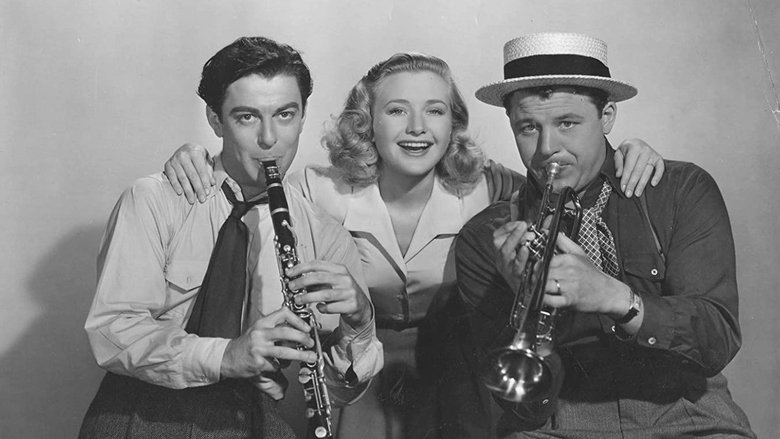
Blues in the Night (1941)
A struggling band find themselves attached to a fugitive and drawn into a series of old feuds and love affairs, as they try to stay together and find musical success.
Watch Trailer
Cast
Similar titles
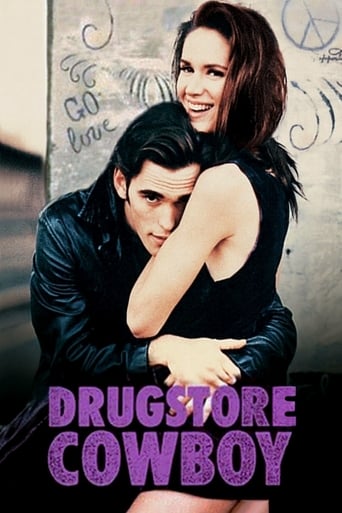
Reviews
I like the storyline of this show,it attract me so much
This movie is the proof that the world is becoming a sick and dumb place
This story has more twists and turns than a second-rate soap opera.
This is a must-see and one of the best documentaries - and films - of this year.
I caught this one on TCM just yesterday morning. Based on the title(because I happen to love the song),I thought it would be a lot better than it was. Basically, "Blues In the Night" is a hot mess! It's a musical/noir/melodrama and therein lies the problem. Too many genres,with no clear vision of what story it wants to tell. The saga of a struggling band? The mental breakdown of a guy hopelessly in love with a no-good woman? The trials and tribulations of a married couple trying to be keep it together while on the road? This last bit reminded me of Scorcese's 1970's film, "New York,New York" and for all we know,this film may have been in the back of his mind when he made that one.One thing that bugged me a lot while watching this film was the over the top performance of Betty Field.Waaaayyy too much! How could any man fall for a woman that acted like her? Loud mouth,loud clothes,no class,awful make-up,etc.etc.Some of the musical performances are good,especially the title song,sung by the black guy in jail,the appearance of the Jimmie Lunceford Band and the one song that Priscilla Lane gets to sing after they start their gig at the roadhouse. It also boasts one of the worst musical performances I've ever seen on film, when the band goes to visit Jigger at his new gig and that blonde with the back-up singers does that weird song where she's making a lot of faces. She's like some 1940's version of Miley Cyrus with the outrageous bouncing around and facial contortions.In general,it wasn't horrendous,but it could have been so much better. No wonder John Garfield turned down the role of Jigger. If that was the script he read,who could blame him?
Jazz pianist Richard Whorf (as "Jigger" Pine) puts together a swinging 1940s band, with handsome young Billy Halop (as Peppi) on drums, law student Elia Kazan (as Nickie) playing clarinet, and cell-mate Peter Whitney (as Pete) handling the bass fiddle. In New Orleans, the quintet adds trumpeter Jack Carson (as Leo) and his pretty girl singer wife Priscilla Lane (as "Character"). The band is a hit, as managed by enterprising Lloyd Nolan (as Del Davis). But, trouble reigns as Mr. Nolan supplements nightclub success with a gambling racket, and involves sexy femme fatale Betty Field (as Kay Grant) with the group.This adaptation of the jazzy play "Hot Nocturne" is astonishing in a couple of ways. The film's use of music is exceptional. The original soundtrack songs, by Harold Arlen and Johnny Mercer, are excellent. Sung beautifully in the jail scene by William Gillespie, the title song was a huge "Academy Award"-nominated hit, with Woody Herman's double-sided Decca record "Blues in the Night" (#1) b/w "This Time the Dream's on Me" (#8) outdistancing an unstoppable parade of hit versions.Dinah Shore, apparently parodied herein, had a million-seller with her "Blues in the Night". Also noteworthy is the film's marvelous use of film montage; there are several striking sequences, put together (presumably) by editor Owen Marks, photographer Ernie Haller, and director Anatole Litvak. You'll know them when you see them. However, the two future directors in the cast (Whorf and Kazan) don't always come across very well, and Mr. Litvak doesn't really get the performances possible from several in the cast. While other characterizations are curiously lacking, Nolan and Ms. Field make the most of their parts.******* Blues in the Night (11/15/41) Anatole Litvak ~ Richard Whorf, Betty Field, Priscilla Lane, Lloyd Nolan
The final minute is what I would have expected from the entire film: dark, slow, some blues music, and moody. Regrettably, that last minute is an aberration in a script wherein the intended blues theme is overwhelmed by way too much dialogue. And the story lacks focus.A troupe of blues musicians never quite gets around to playing much blues music. Instead, lots of contrived situations keep the film plot bound, with assorted conflicts swirling around the various characters. Jigger Pine (Richard Whorf) is a piano player and the troupe leader, with lots of problems. But as soon as the angry, brittle Kay (Betty Field) appears, about a third of the way through the film, the story's emphasis seems to switch to her. Kay is nothing if not embittered, and she hisses her way through the remainder of the film, as she crosses paths with Jigger.All that angry talk drains away a blues atmosphere, which could have made the film sultry and moody.Casting and acting are acceptable. But characters talk ninety miles an hour. It's as if the director is timing actors' lines of dialogue with a stopwatch. The music is generally disappointing. One of the production numbers in the second half, "Says Who? Says You, Says I" is just awful.The B&W cinematography is okay, but there are too many dissolves. And a montage that details a psychiatric problem is so visually juvenile that it looks like something from a high school drama class experiment.Production design is drab, bleak, and cheap looking. But at least it gives what is probably a fairly accurate representation of film sets used during the Great Depression.Overall, "Blues In The Night" is disappointing, mostly because of a script that is too talky and so rigidly plot bound that the intended musical blues theme gets smothered.
The blues and swing music are quite good, what there was of it. Unfortunately the music keeps getting interrupted by the sort of sappy story that Hollywood usually attached to films that were billed as musicals.Down and out musicians, riding the rails like hobos, decide to form a band at Depression's end, but they keep getting involved with gangsters, stupid club owners and a woman of very questionable morals who would break up their happy family. There's a good girl, of course, a blond singer who belongs to a philandering trumpet player. Oh, what's the use--no one would watch this for the story or to see Jack Carson or Lloyd Nolan or the rest of them.If only there had been more of the music and less of what some might call "drama," and what I would call fast talking, poor acting treacle.
